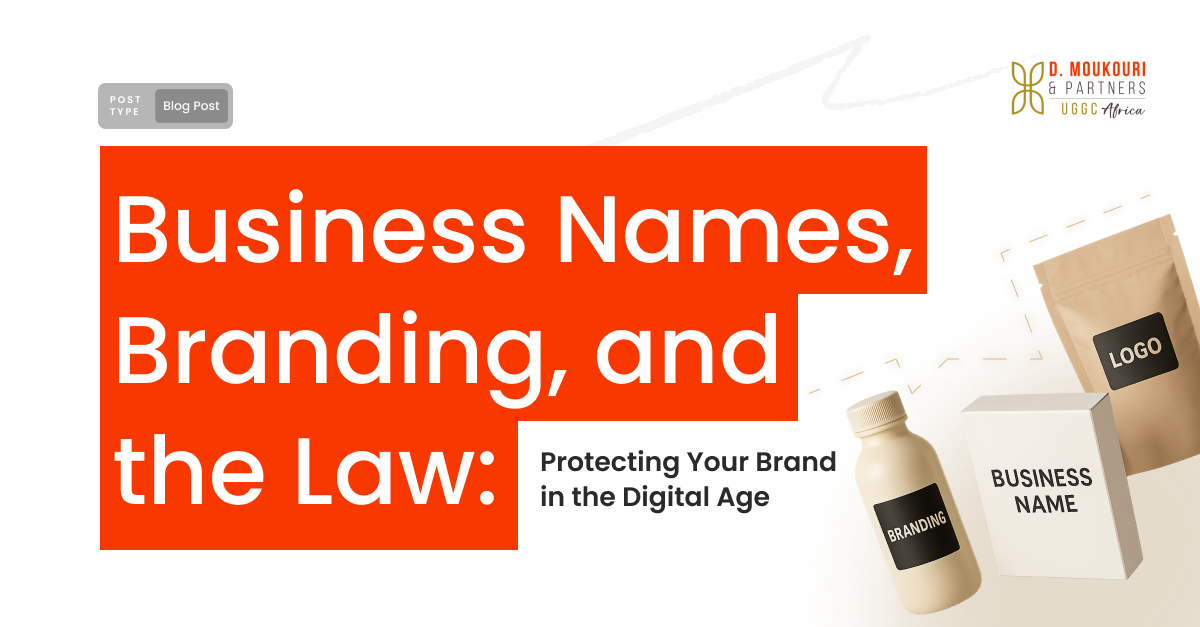In the era of e-commerce, influencers, and online services, launching a brand is more than a creative act, it’s a legal one. Your business name, logo, and online presence are valuable digital assets. And in Africa’s fast-moving digital economy, protecting them isn’t optional, it’s strategic.
Whether you’re running a tech startup, online store, or creative brand, here’s what to know about building legally sound branding in a connected world.
1. Digital Branding Starts with Legal Clarity
Before choosing a name or handle, check:
- Business name registries in your country
- Trademark databases
- Domain and social media availability
Why it matters: Using a name already claimed (even on Instagram!) can lead to takedowns, rebrands, or IP disputes especially when platforms enforce their own naming rights policies.
2. Register Your Business and Secure the IP
Your name, logo, slogan, and brand identity are part of your intellectual property (IP). Registering your business with national authorities gives you structure, but trademarking gives you power.
If your business is digital-first or operates across borders, consider IP protection across multiple jurisdictions, or at least in key export or audience markets.
For guidance on brand protection, professionals like Barrister Danielle Moukouri, is an expert in intellectual property law, are helping African businesses protect their names, ideas, and creative assets in today’s fast-changing digital world.
3. Secure Your Brand Online
In tech, visibility is everything. Once your name is clear:
- Buy your domain (ideally a .com, .africa, or country-specific extension)
- Reserve matching social handles
- Draft platform-specific terms and conditions if you’re launching a web or mobile service
Pro tip: If you’re running a SaaS, blog, or e-commerce platform, terms of use, privacy policies, and disclaimers are not optional. They are your first legal defense online.
4. Use Contracts When Outsourcing Digital Work
Working with designers, developers, or content creators? Make sure you have a contract that clearly states:
- Ownership of deliverables (IP transfer clauses)
- Licensing rights
- Confidentiality and non-compete terms (if relevant)
This is especially critical if your brand assets are designed by freelancers or agencies, don’t assume ownership unless it’s in writing.
5. Think Beyond the Logo, Think Brand Protection
Your online presence (Instagram pages, newsletters, course platforms, etc.) should reflect your brand and be protected from misuse or impersonation. As Lawyers, we see too many businesses fall prey to brand theft, fake accounts, or unfair use.
Consider digital monitoring tools, cease & desist templates, and platform reporting procedures as part of your protection plan.
In a digital world, branding is both creative and legal. A memorable name and striking logo are just the start.
If you’re serious about building an online brand in Africa, make legal protection part of your launch checklist, not an afterthought.And when in doubt? Talk to a lawyer who understands your space.

